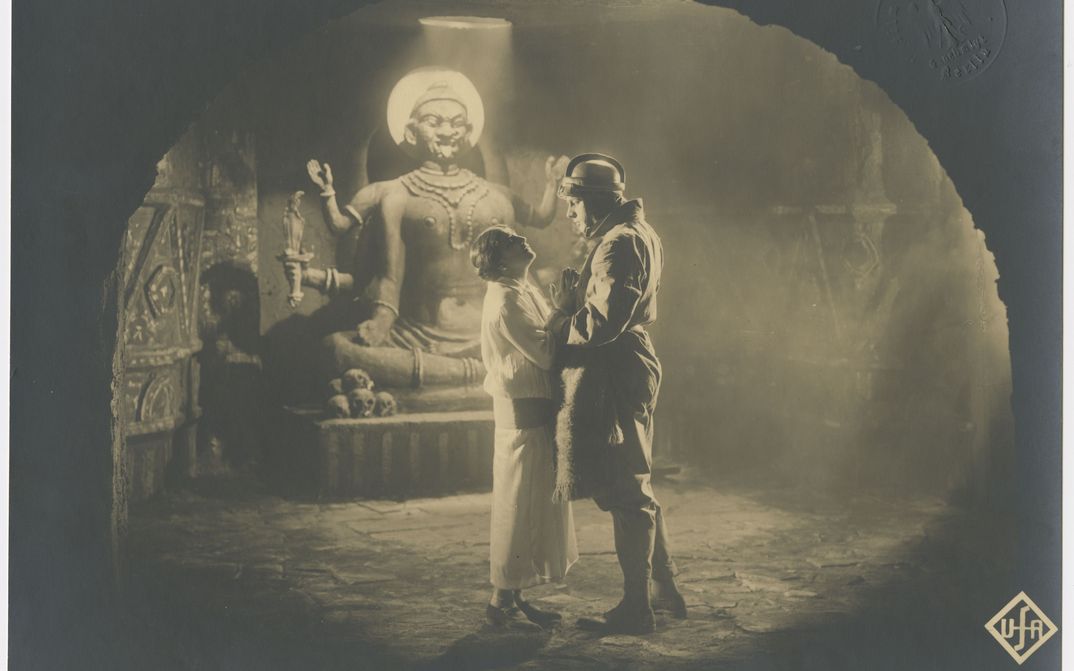Ellen Richter – Weimar Cinema's Action Queen (2)

Who was Ellen Richter? “My parents were common Jewish people from Hungary who wanted to make a good housewife out of me. You can imagine the extent of their astonishment when their daughter told them a few years later that she wanted to become an actress,” Richter recalled in 1928. By this time, Ellen Richter – who was born Käthe Weiß in Vienna in 1891 – was one of Weimar cinema’s most popular film stars. Her fan-base extended far beyond Germany’s borders. Her name stood for wit and charm, for a new kind of femininity, fearless, adventurous, headstrong, always moving forward and in with the latest fashion. Often a slightly ironic view of her on-screen roles flashes through the emotionality, a casual sovereignty.
Richter never became a well-behaved housewife, not even after she married the dentist-turned-librettist Willi Wolff in Berlin in 1915. From then on, she and Wolff formed a long-lasting and extremely productive working partnership, with Wolff serving as writer and director of her films. In her early films, Richter, with her dark hair and complexion, often embodied the role of an “exotic”. This changed when she founded her own production company with Wolff in 1920. From then on, she would decide for herself which roles she would play. These included famous women from history such as Lola Montez, but also fearless adventurers, as epitomized by the series of large-scale travel and adventure films that took Richter and Wolff to Southern Europe, North Africa, India and the United States. Such films earned her the reputation of Weimar cinema’s action queen. She would frequently appear as a detective, artist or revue star, roles she consciously played with. She also enjoyed cross-dressing scenes.
As a trained theatre actress, Richter made the transition from silent films to talkies with ease. In 1933, her career came to an abrupt end as a result of the discrimination against Jewish artists after the National Socialists came to power. She and Willi Wolff emigrated to Austria, then to France and finally to the USA, where they both managed to survive the Holocaust. She never appeared in films again. Ellen Richter died, largely forgotten, in Düsseldorf in 1969.
Of the 70 odd films in which Ellen Richter appeared between 1913 and 1933, only a fraction have survived. Thanks to the growing interest in women in film history, a number of her films have been re-discovered and restored by film archives in recent years. Now, for the first time, a selection of her films can be seen again on the big screen in Germany – with live musical accompaniment by some of Europe’s finest silent film musicians.
The retrospective is curated by Oliver Hanley, Lihi Nagler and Philipp Stiasny and funded by Capital Cultural Fund.